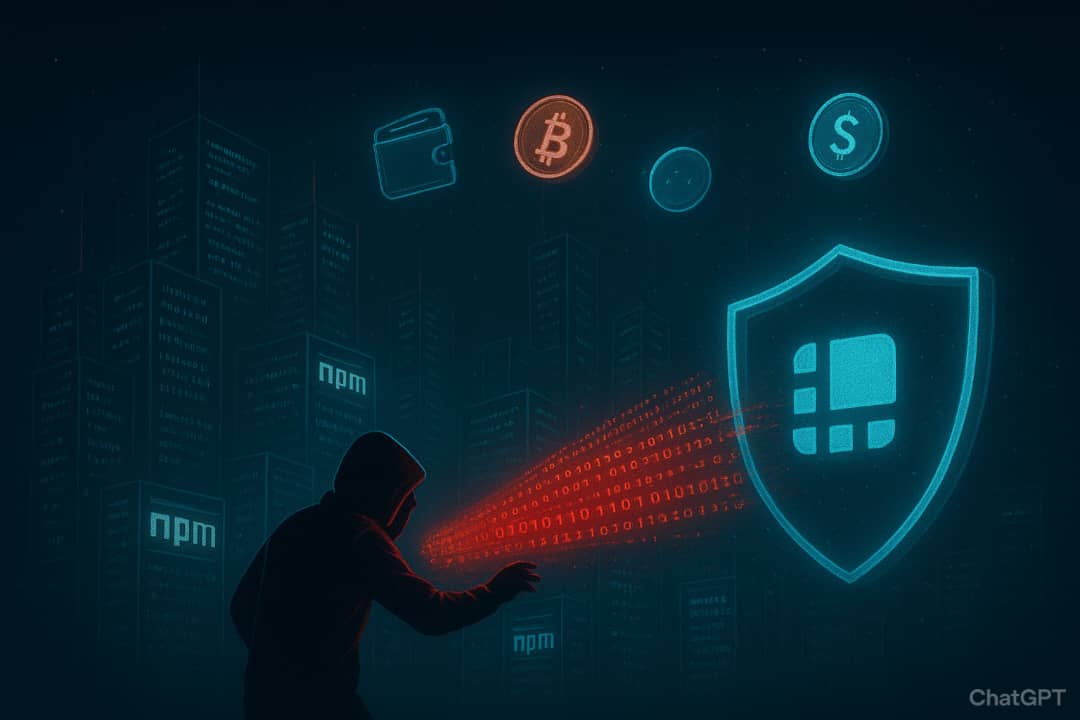
The JavaScript ecosystem has been rocked by a significant supply chain attack, drawing attention to the fragile security of open-source software. Charles Guillemet, CTO of Ledger, recently reported a widespread compromise in the NPM distribution network that has affected packages with over 1 billion downloads. This incident underscores the need for vigilance in software development and cryptocurrency transactions.
🚨 What Happened?
According to Guillemet, the exploit began when a reputable developer’s NPM account was compromised, allowing malicious payloads to be injected into popular packages. These packages are integral to many frontend applications. The injected code is designed to replace crypto wallet addresses during transactions, redirecting funds to the attacker’s wallet. Frighteningly, this can occur without the user’s awareness, making it a silent threat with significant repercussions in the crypto space.
Although the compromised versions have been disabled by NPM, many frontend applications relying on cached or unpatched versions remain at risk. Unfortunately, questions remain about whether attackers are also harvesting sensitive information like seed phrases from software wallets. Developers and users alike have been advised to proceed with caution.
Community Responses
The breach has prompted immediate responses across the Solana ecosystem. Various protocols, wallets, and services have weighed in:
- Drift Protocol: The Solana-based protocol confirmed that its SDK and UI were unaffected by the compromised packages. It recommends users stay alert when signing transactions until further updates are provided.
- Solflare: Popular for its rigorous security practices, Solflare stated its users are not at risk, citing safeguards like version locking and detailed code reviews.
- Kamino Finance: Co-founder Marius confirmed that Kamino has no dependencies on the compromised NPM packages, reassuring users of the platform’s integrity.
- Marinade Finance: While monitoring the attack closely, Marinade reported no initial impact on its systems. However, it continues to advise vigilance.
- Jupiter Exchange: Solana’s leading DEX aggregator confirmed its web and mobile platforms remain unaffected, offering peace of mind to its users.
What is a Supply Chain Attack?
In a supply chain attack, malicious actors infiltrate the software development pipeline by compromising trusted components like libraries or developer accounts. These attacks often evade traditional security measures, as they exploit the implicit trust developers place in widely adopted tools and packages. For the cryptocurrency industry, the stakes are even higher due to the financial nature of crypto transactions. Address-swapping attacks, such as this one, can lead to the immediate loss of funds.
Staying Safe in the Face of Risks
These types of attacks highlight the importance of proactive security strategies. Developers must regularly audit their dependencies and lock versions to prevent unverified updates. For individual users, exercising caution when performing transactions is key, especially when dealing with sensitive financial details. Consider investing in trusted hardware wallets like the Ledger Nano X, renowned for its offline security and prevention against supply chain vulnerabilities.
Final Thoughts: Vigilance is Key
While this latest attack has been partially mitigated, it serves as a stark warning for both developers and users. With over 1 billion downloads potentially at risk, this incident emphasizes the importance of robust security measures and continuous monitoring in the open-source and crypto ecosystems.
For ongoing updates on crypto, tech, and cybersecurity, follow us on Twitter @nulltxnews. Stay informed and secure while navigating the changing digital landscape.





